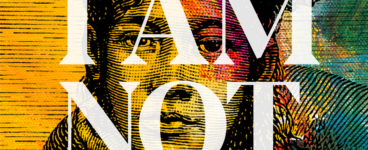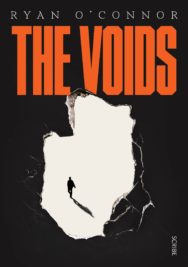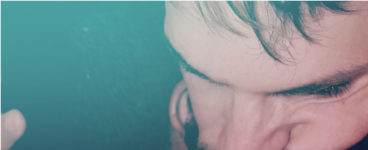‘It was a space. A liminal world in which I could disappear and confront my past. One I emerged from after two years with the idea for my debut novel, The Voids’
The Voids is a story of modern-day Britain, beginning in a condemned tower block in Glasgow. As the residents slowly trickle away, the book’s protagonist is surrounded by absence – whether literally as neighbours leave, or purpose, as he muddles on forward. Stumbling through encounters on the margins of society, it’s a tale of grappling with an unknown future. Read more about Ryan O’Connor’s inspiration for the book below.
The Voids
By Ryan O’Connor
Published by Scribe UK
Around ten years ago I quit my job managing a restaurant in typically insalubrious circumstances. I say typically, as it wasn’t the first time. I’d lost at least a dozen jobs in such fashion. However, these were particularly wretched circumstances. Mid-shift, disenchanted, nauseous with existence – my existence, and on the brink of cracking-up, I took half a dozen bottles of alcohol from the cellar then sat on the customer side of the bar and started drinking and railing at the world. Eventually, having said my several incoherent pieces and packed my bag with the liberated booze, I bid farewell in a suitably theatrical manner to terrified and, justifiably, disgusted staff and customers, then exited. Or rather, attempted to. On the way out I tripped over a stool and smashed my face in. Three days later, as well as still being drunk, and of course jobless, I was sitting in A&E, newly single, homeless, and unemployable. I was a walking talking cliché stepped right out of a blues or country song. Seriously, it was lucky for some dog that I didn’t have a dog, as it would almost certainly have been killed. I was a total mess and falling apart. With nowhere and no one to turn to in Glasgow, I returned to the only place I could, back to my mother’s flat in the town I grew up in.
Unfortunately, my hometown harboured the ghosts and demons that had haunted and driven me from the job, the home, and all the love and friendships I’d just lost. Had driven me from every job and every home I’d lost. Not only the brick-and-mortar homes, but the refuges of the heart too. I’d found it impossible to stay anywhere, with anyone, my whole life, and I couldn’t stay back at my mum’s either. If I had, it’s not overstating it to say there’s every chance I’d be dead now. And so, after several weeks, with the help of the one friend still willing to stand by me, I dragged myself back to Glasgow and the unfurnished flat I was offered on the fourteenth floor of a high-rise. A soon to be condemned high-rise. What proceeded was two years of solitude. As Tom Waits sings, ‘And I thought that I knew, all that there was to, lonely …’ But I didn’t. I had no idea about true loneliness. Though I was about to find out. Once I’d taken up residence in the high-rise, my slide continued unabated. Only now it had some element of purpose. It was never a home. But it was something I desperately needed. It was a space. A liminal world in which I could disappear and confront my past. One I emerged from after two years with the idea for my debut novel, The Voids.
I’ve written this with a large, self-conscious measure of humour, but that shouldn’t belie the depths I plunged or heights I soared in my sad and mad journey towards understanding and coming to terms with the decline I’d been on for years. Along the way I encountered tragedy, love, and friendship, in the most unexpected places. Blood was spilled in the living of it, and the writing of it. As to what is real and what is fiction in The Voids, at times I’m not entirely sure myself. Everything is real, and everything is fiction. Borrowing Jayne Anne Phillips’ introduction to Black Tickets where she puts it perfectly … ‘The characters and voices in (The Voids) began in what is real, but became, in fact, dreams. They bear no relation to living persons, except that love or loss lends a reality to what is imagined.’ The Voids was my ticket then. A blank ticket back to Somewhere.
In writing The Voids, I wasn’t directly inspired by other artistic works. In all honesty, inspiration came from living it. However, depth and meaning were certainly added to that living by the work of many others. Principally, Malcolm Lowry’s, Under the Volcano. I once read of Lowry that, though he knew heaven, he knew hell best. Though he knew hope, he knew despair better. I think he saw and knew all equally, and his numinous book was my constant. Theodore Roethke’s poem, The Waking, I read every morning while in the high-rise. I love its courage, its musicality, and its sense of teetering on the brink of despair and wonder. Joseph Roth’s novel, The Legend of the Holy Drinker, marked me and has remained special to me since I first read it in my late teens. A haunting hallelujah to the glory and miracle of life. And finally, The Blue Nile’s, A Walk Across the Rooftops, a masterpiece. Perhaps the one work I was directly inspired and influenced by. In the way it eschewed all the usual clichés and rendered peerlessly, for me anyway, Glasgow glimpsed from beneath another star – and the longing for home and love inside all of us.
In writing The Voids, I wasn’t looking for redemption or salvation. I’d lost life and I wanted to find it again, even if it was chaotic. I wanted it back. So, I wrote this book because I had to – if I wanted to live. And I did, I wanted to live. That’s why I wrote The Voids.
The Voids by Ryan O’Connor is published by Scribe UK, priced £14.99.
ALSO IN THIS ISSUE

 I Am Not Your Eve: A Q and A with Devika Ponnambalam
I Am Not Your Eve: A Q and A with Devika Ponnambalam
‘The book gives a voice to a girl forgotten by history’














